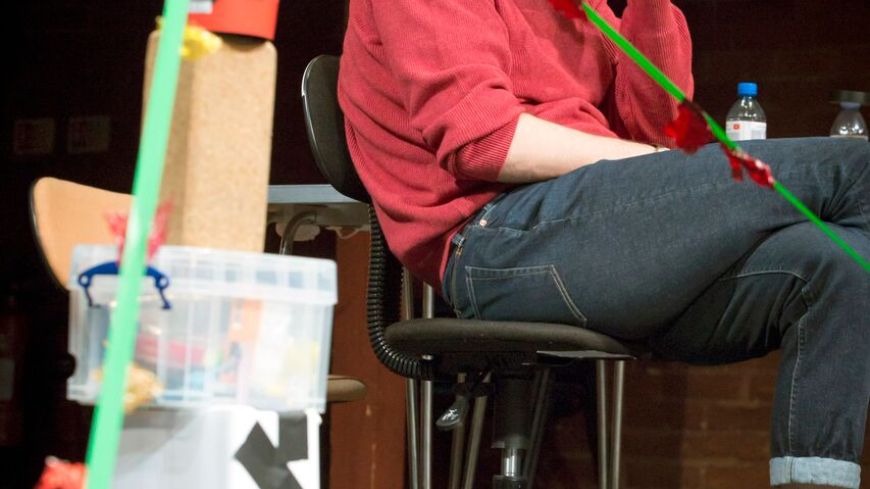
Four trestle tables; some office chairs; scripts, highlighters, food and other debris scattered nonchalantly about. One might be forgiven for imagining they'd walked in on a readthrough. An idea not altogether assuaged by the opening of the Actor's Touring Company's new production Winter Solstice, in conjunction with Orange Tree Theatre.
The play takes place over the period of about seven hours on Christmas Eve, in a family apartment in Sweden. It has snowed heavily. Trains have been delayed. Albert (Felix Hayes) and Bettina (Kirsty Besterman) are playing host to Bettina's mother Corinna (Marian MCLoughlin) who is a source of tension at any time, Christmas being no exception. Things take a turn for the interesting when a stranger arrives on the doorstep at Corinna's invitation; Rudolph (David Beams) enters the family home to add an unexpected dynamic. Hours later, family friend Konrad (Gerald Kyd) shows up to complete the quintet.
Roland Schimmelpfenning's script makes no pretensions of having a fourth wall. Each actor is a narrator as well as a character, painting a detailed picture of the events of the evening and the characters themselves with shrewd and comedic asides, wading through dramatic irony as they go. The set, if we can call it that, is really a toolbox. The debris look like the aftermath of a creative meeting but are used with great dexterity and humour as a means of bringing the script off the page. Objects are used as props or to make sounds effects, much like the dramatisation of a radio play, and it may do well as such. There is not much action to justify it as a stage piece, as it is all narrated, although watching the cast's performances does make up for the lack of action. For the majority of the play the actors remain seated on their revolving, wheeled office chairs.
There is a shift in tone as the play goes on. Eventually things become more real; water bottles are replaced with wine glasses, a real Christmas tree is brought on and Marina, the seven-year-old, who has thus far been voiced by the adults, now has the voice of a real child. Could this be a consolidation of reality within the child's head? Or does it take a child to tell it how it is?
There are some interesting discussions initiated by the illusive Rudolph, a character with no motives and no history, one who delights in beauty and music, and makes allusions to Norse Gods who serves to charm Corinna's romantic streak and vex the artistic natures of the other three. Despite being painted as intellectuals, Albert, Bettina and Konrad do very little to elevate themselves to an intellectual level; there seems to be an avoidance, a fairly childish self-obsession within them all that fails to address the important things.
It's a sharp and funny play, a sort of tragi-comedic portrait of a rather haphazard and careless middle-class family, but it stumbles over trying to do too much. There are red herrings on almost every page which serve to colour the character portraits but fail to really say anything, or to do anything for the plot. An insular depiction of a much wider problem that seems to know exactly what it's doing, even if the audience does not.
Traverse Theatre until March 24th.

